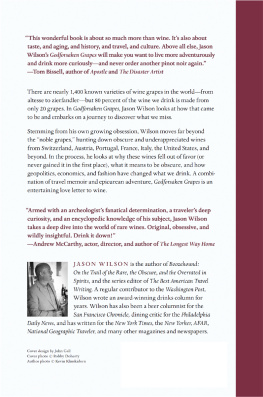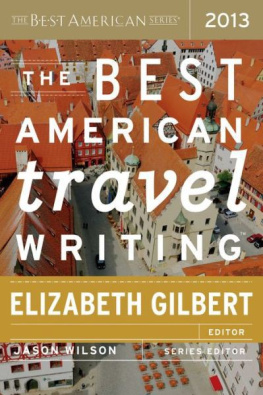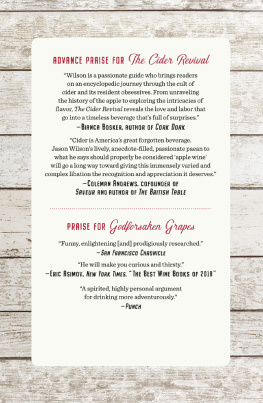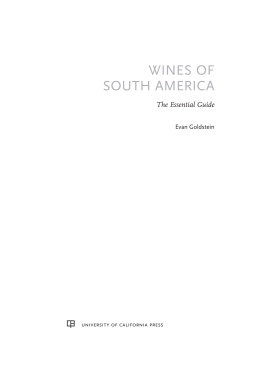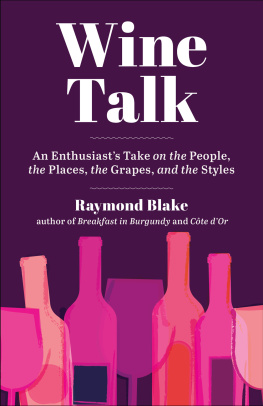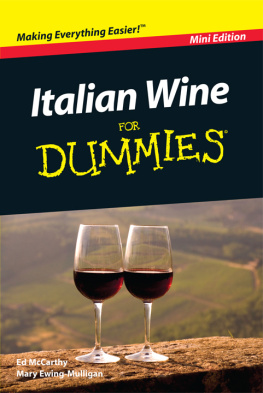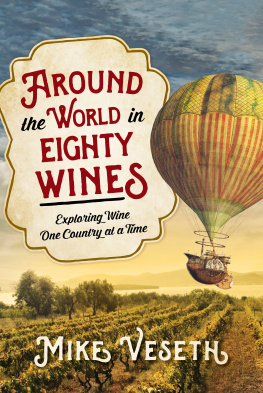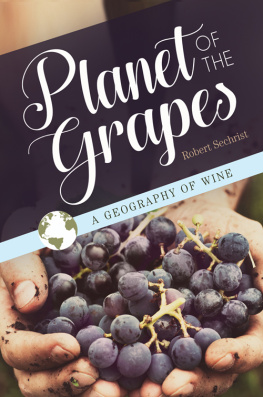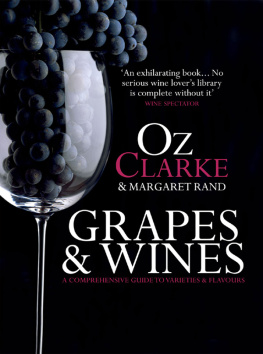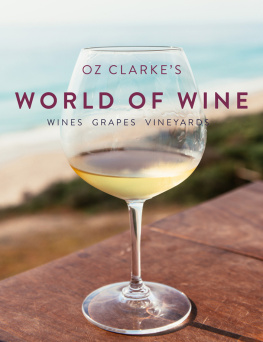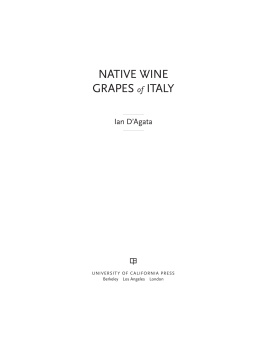ALSO BY JASON WILSON
Boozehound: On the Trail of the Rare, the Obscure, and the Overrated in Spirits

Copyright 2018 Jason Wilson
Cover photography copyright 2018 Bobby Doherty
Published in 2018 by Abrams Press, an imprint of ABRAMS. All rights reserved. No portion of this book may be reproduced, stored in a retrieval system, or transmitted in any form or by any means, mechanical, electronic, photocopying, recording, or otherwise, without written permission from the publisher.
Portions of this book have been adapted from previously published material in the Washington Post, AFAR, the Smart Set, Table Matters, and Beverage Media.
Library of Congress Control Number: 2017949743
ISBN: 978-1-4197-2758-0
eISBN: 978-1-68335-210-5
Abrams books are available at special discounts when purchased in quantity for premiums and promotions as well as fundraising or educational use. Special editions can also be created to specification. For details, contact specialsales@abramsbooks.com or the address below.

ABRAMS The Art of Books
195 Broadway, New York, NY 10007
abramsbooks.com
To my sons, Sander and Wes, in hopes that theyll someday discover their own unique tastes (after they turn 21, of course)
A man who was fond of wine was offered some grapes at dessert after dinner. Much obliged said he, pushing the plate aside. I am not accustomed to take my wine in pills.
JEAN ANTHELME BRILLAT-SAVARIN
TABLE OF CONTENTS
The discovery of a wine is of greater moment than the discovery of a constellation.
The universe is too full of stars.
BENJAMIN FRANKLIN
I.

THE VINES IN THE SKY
CHAPTER 1
Dangerous Grapes
In the Swiss canton of Valais, melted cheese is serious business. At the 16th-century Chteau de Villa in Sierrebilled as Le Temple de la Raclettethe evenings menu was straightforward: raclette. A guy with a long knife, called a racleur, scraped hot, bubbling, gooey raclette from a wheel onto warm plates that were then whisked to our wooden table, where we added small boiled potatoes served from wooden baskets, along with cornichons, pickled onions, chanterelle mushrooms, and rye bread. After that raclette, there was more raclette. For two hours, the raclette kept coming. Each plate featured a different puddle of raw-milk cheese from a different nearby mountain village. When I asked for ice water, I was gently scolded by the waiter: Never drink cold water with raclette. The cheese will congeal into a cheese baby in your stomach.
No water was fine with me. I was at Chteau de Villa to drink wine with my melted cheese. And not just any wine, but wine made from some of the most obscure grapes in the world. As another round of raclette arrived, Jean-Luc Etievent, my unshaven and pastel-wearing French dining companion, poured a glass of humagne blanche. It tasted strange and big and sexy, full of ripe exotic fruit, surrounded by delicate floral aromassort of like mountain flowers picked by a Kardashian wearing a dirndl.
If youve never heard of humagne blanche, I dont blame you. I have been an aficionado of obscure wine and spirits for years, and Id never heard of this white wine either. Humagne blanche dates to at least the 14th century, and in the mid19th century it was the most widely grown grape in Valais. Now, only 75 acres of humagne blanche remain in the entire world. By comparison, cabernet sauvignon and merlot each grow on over 700,000 acres worldwide, and chardonnay grows on over 400,000 acres. With a Gallic shrug, Etievent said, Drinking the same wines all the time is really boring.
Before Id finished with my glass of humagne blanche, I was given a second glass by the other wine sherpa at our table, Jos Vouillamoz, a short, bespectacled Swiss guy in his mid-40s who wears a flat cap and kicks around his nearby hometown of Sion on a kids scooter. We will now taste one of the rarest wines in the world, he said, with a flourish.
Vouillamoz poured me a glass of wine made with a grape called himbertscha, which hed helped rescue from a forgotten vineyard found high in the Alps. In the entire world, only these two acres of himbertscha exist, from which less than 800 bottles are made each year. Himbertscha is one of the strangest white wines I have ever tastedlike a forest floor of moss and dandelions thats been spritzed with lemon and Nutella. Vouillamoz took a big sip and said, Critics claim that obscure varieties like this will never be as good as Bordeaux or Burgundy. Well, maybe not now. But what about in 50 years? One hundred years?
We might reasonably call Etievent and Vouillamoz the Indiana Joneses of ampelographywhich happens to be the study, identification, and classification of grapevines. Both are explorers on an obsessive hunt for the rarest wine grapes in the world. Vouillamoz is a world-renowned geneticist and botanist, and coauthor of the encyclopedic tome Wine Grapes: A Complete Guide to 1,368 Vine Varieties, Including Their Origins and Flavors (with Julia Harding and Jancis Robinson). His lifes work is the study of vitis vinifera, the European grape species thats used to make most of the worlds wine. Meanwhile, Etievent is the cofounder of Paris-based Wine Mosaic, a small nonprofit organization that works to rescue indigenous wine grapes from extinction. All over the Mediterranean, from Portugal to Lebanon, Etievent and his similarly obsessed colleagues seek out growers of rare varieties, helping farmers identify what grapes they have, then essentially serving as a support grouporganizing tastings and connecting them with importers, university researchers, and wine drinkers.
I found myself in Valais because Id grown increasingly obsessed with obscure and underappreciated wine grapes, and Etievent had invited me on a harvest-time trip to see and taste some of Wine Mosaics most successful projects in the Alps. Here, isolated vineyards, strange microclimates, and decades spent off the traditional wine worlds radar have preserved local grapes and farming traditions. In less than a decade, Wine Mosaic has saved more than 20 traditional Alpine grape varieties from dying out.
Earlier that day, about 40 kilometers from Chteau de Villa, Etievent and I visited the most extreme vineyards Id ever experienced, at a craggy mountain place called Domaine de Beudon. Etievent, perhaps channeling a Parisian version of Indiana Jones, carried a pickax and wore heavy leather boots, along with royal blue pants, a white belt, and a pink scarf. We were joined by yet another rare-grape expert, Jean Rosen, vice president of a Dijon-based organization called Cpages Modestes (literally modest grapes). Rosen, short, stocky, and bearded, was himself a modest guy. His nickname is Petit Verdot, after the least-known and most finicky grape used in Bordeaux blendsa variety that ripens so late that in some years the entire crop is lost. Before Petit Verdot became immersed in esoteric wine grapes, hed been an English teacher, then an antique ceramics expert.
The only way up to Domaine de Beudon was by a creaky wooden aerial cable carlike something out of a Wes Anderson movie. After we called up to the mountaintop on an old-fashioned phone, we waited as the cable car slowly wobbled down, and then as boxes of grapes were unloaded. A photographer traveling with us, terrified, refused to get into the cable car. Etievent, Petit Verdot, and I squeezed in, and we quickly jolted upward, suspended from a swaying cable. I could see the ground, hundreds of feet below, through the cracks between the floor and the door. About halfway up, the car lurched steeply, climbing almost vertically over a protruding rock face (the
Next page
